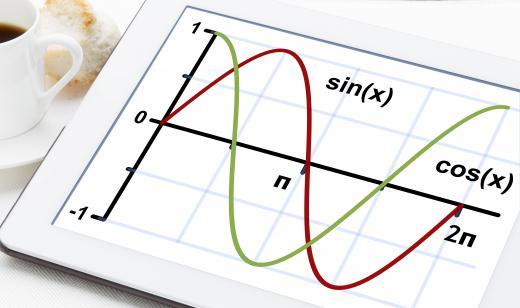Fourier analysis is a mathematical method used to break down and transform a periodic function — i.e., a mathematical relationship between a quantity and a variable or variables whose relative values consistently repeat over some regular period of time — into a set of simpler functions which can then be summed and transformed back into the original form. Invented in the early 19th century, French physicist and mathematician Jean Baptiste Joseph Fourier transformed the partial differentiation equation representing the propagation of heat into a series of simpler trigonometric wave functions — i.e., sines and cosines — that could be superimposed to reconstitute the original function, thereby providing a simpler, general solution to the problem.
Today, Fourier analysis is used to analyze and better understand a wide range of natural and man-made processes and phenomena. It has been applied to a wider variety of problems in the physical and natural sciences and in engineering, including quantum mechanics, acoustics, electrical engineering, image and signal processing, neurology, optics, and oceanography.

A Fourier analysis begins with a Fourier transform, which breaks down, or decomposes, a single, more complicated periodic wave function into a set of simpler elements called a Fourier series that takes the form of sine and cosine waves or complex exponential equations. These can then be solved using simpler mathematics and superimposed, or recombined, to yield a solution to the original function via linear combination. Narrowly defined, Fourier analysis refers to the process of decomposing the original function into a series of simpler components. More generally, it can also include Fourier synthesis, the process by which the original function is reconstituted by performing an inverse transform that essentially runs the Fourier analysis in reverse.
Improved, expanded upon, and the core of what has come to be known as the field of harmonic analysis, Fourier analysis has evolved and progressed to include the study of more abstract and general phenomena. Fourier analysis is now used actively, regularly, and widely in econometrics and financial markets theory by researchers and practitioners to forecast, as well as analyze and better understand, the nature and behavior of a wide range of time series data and parameters that exhibit non-linear relationships and repeating, wave-like patterns over time. Among its many applications, it has been used to model long-term economic cycles, the relationship between inflation and the demand for money, and patterns and trends in the stock, foreign exchange, and housing markets, and cycles in the semiconductor industry, as well as to measure the efficiency of a national economy.
